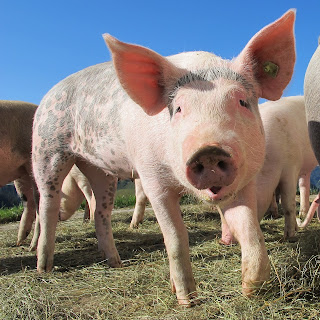The medical industry has undergone remarkable advancements over the years, and one of the most intriguing possibilities on the horizon is the utilization of pig kidneys to save human lives through transplants. With the growing demand for organ transplants and the shortage of available human organs, researchers are turning their attention towards xenotransplantation, the transplantation of animal organs into humans. Among the potential donor animals, pigs have emerged as a promising candidate due to their physiological similarities to humans. This article delves into the exciting potential of using pig kidneys for human transplants, addressing the challenges, ethical concerns, and the path this innovation could pave for the future of medical science.
The Need for Organ Transplants
Organ transplantation has been a life-saving medical procedure for patients suffering from organ failure or irreversible damage due to diseases like kidney failure, heart disease, and liver failure. However, the demand for organs far outweighs the supply, leading to long waiting lists and unfortunate outcomes for many patients. According to the World Health Organization (WHO), around 150,000 kidney transplants are performed annually, yet over 1 million people worldwide require kidney transplants. This disparity highlights the urgent need for innovative solutions to address the organ shortage crisis.
Enter Xenotransplantation
Xenotransplantation, which involves transplanting organs or cells from one species to another, is gaining traction as a potential solution to bridge the gap between organ demand and supply. Pigs are particularly appealing candidates due to their anatomical and physiological similarities to humans. The size of pig organs is comparable to that of humans, and their organ functions exhibit similarities as well. For instance, pig kidneys perform functions analogous to those of human kidneys, making them a prime candidate for xenotransplantation.
Scientific Advancements and Challenges
Scientists have made significant strides in overcoming the hurdles associated with xenotransplantation. One of the primary challenges is the risk of hyperacute rejection, an immediate and powerful immune response triggered by the presence of foreign tissue. Researchers have used genetic engineering techniques to modify pigs to express human genes that reduce the chances of hyperacute rejection. By making these modifications, pig organs become less recognizable as foreign to the human immune system, reducing the risk of rejection and improving the chances of a successful transplant.
Furthermore, advancements in gene editing tools like CRISPR-Cas9 have enabled scientists to edit pig genes more precisely, potentially eliminating the barriers posed by rejection and making pig organs even more suitable for transplantation into humans. Despite these advancements, challenges still exist, including the possibility of other forms of rejection and the potential transmission of diseases from pigs to humans. Researchers are working diligently to address these concerns and ensure the safety and efficacy of xenotransplantation.
Ethical Considerations
While the prospect of using pig organs to save human lives is exciting, it also raises ethical questions. Some concerns stem from the ethical treatment of animals, as well as the potential for creating animals specifically for organ harvesting. Striking a balance between advancing medical science and respecting ethical boundaries is essential. Researchers and ethicists are actively discussing these issues and exploring ways to ensure that any advancements in xenotransplantation are conducted responsibly and ethically.
The Path Forward
The path to integrating pig kidneys into the medical industry as a viable solution for human transplantation involves multidisciplinary collaboration among scientists, medical professionals, ethicists, and policymakers. Rigorous testing, regulatory approvals, and clinical trials will be critical to ensuring the safety and success of xenotransplantation. Regulatory bodies will need to establish guidelines that address the potential risks and benefits while safeguarding both patients and the animals involved.
In the long run, the success of pig kidney transplants could revolutionize the medical industry. Patients who were once limited by the scarcity of human organs would have a better chance of receiving life-saving transplants, significantly improving their quality of life and overall survival rates. This advancement could also alleviate the economic burden associated with prolonged hospital stays, dialysis treatments, and the management of chronic organ failure.
The future of the medical industry holds the promise of groundbreaking innovations, and the potential of using pig kidneys for human transplants is one such possibility that could transform organ transplantation. With a critical shortage of human organs, xenotransplantation offers a glimpse of hope for patients in dire need. While challenges and ethical considerations remain, the progress made in genetic engineering and medical research brings us closer to a time when pig kidneys might save human lives.
As we navigate this uncharted territory, it is imperative that we proceed with careful consideration, guided by both scientific advancements and ethical principles, to ensure that the future of the medical industry is one of compassion, innovation, and success.



No comments:
Post a Comment